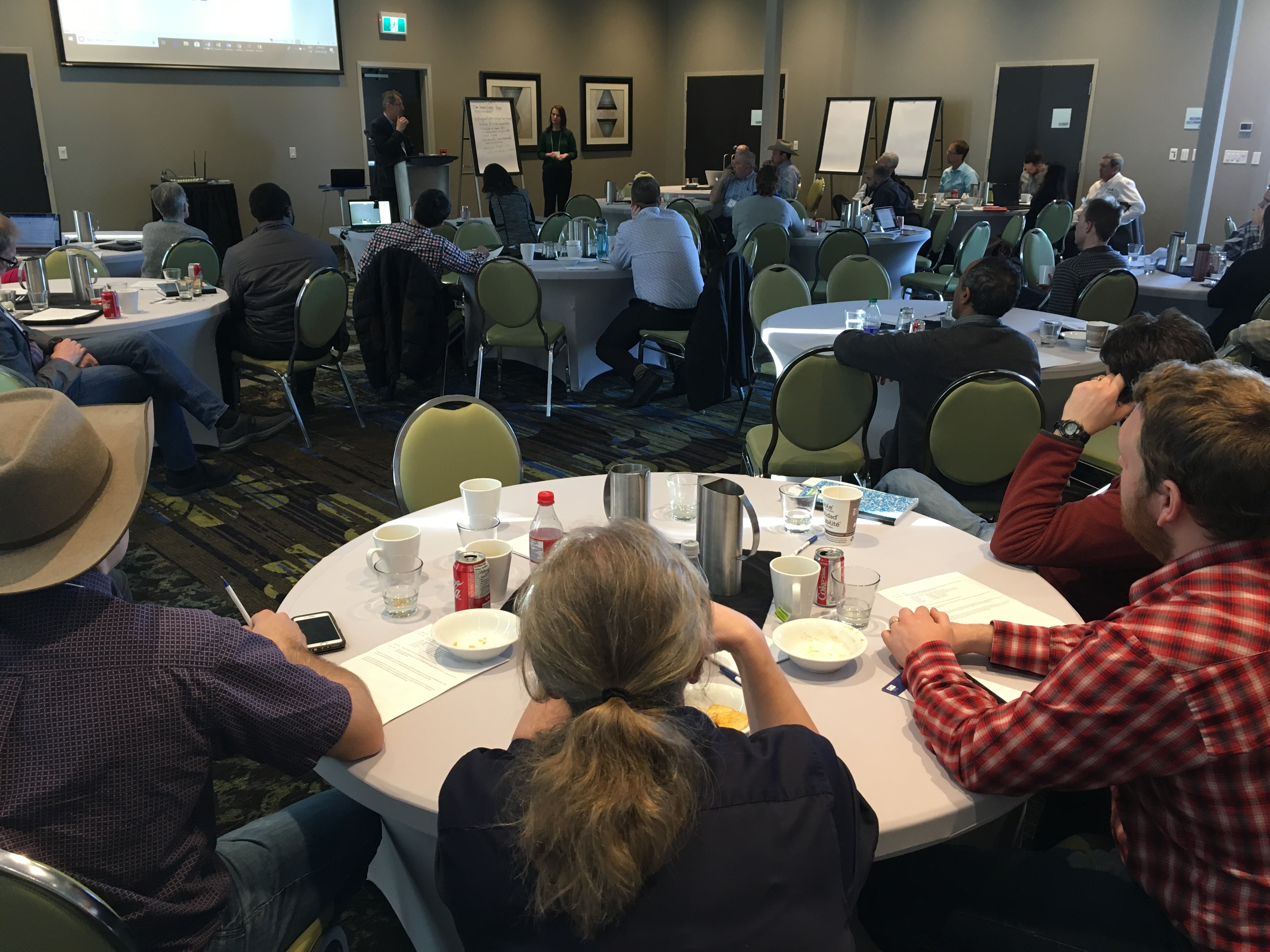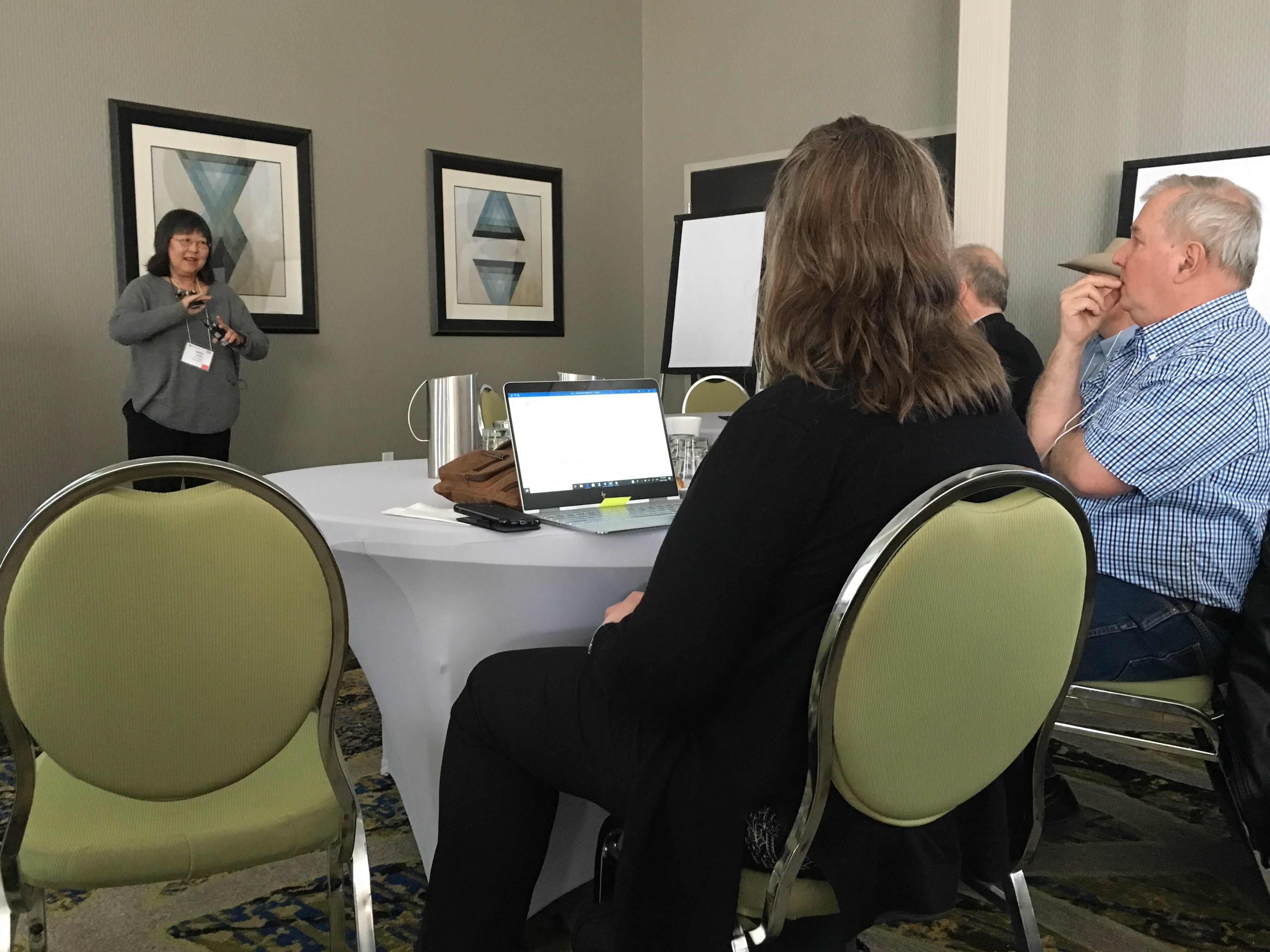
Scientists pitch research to funding agencies
It wasn’t quite the Dragon’s Den, but beef and forage scientists participated in a day-long pitch party with funding agencies this week.
By Lana HaightMore than 60 people attended the Beef and Forage Research Forum sponsored by the University of Saskatchewan and the Saskatchewan Cattlemen’s Association on March 8 at the Holiday Inn Express.
Scientists had eight minutes to explain their current research and identify their priorities, for which they would be looking for funding. Organizers grouped the presentations into sessions, based on the SCA’s six research priorities: economic sustainability, genomics, animal health, animal nutrition and management, environmental stewardship, and forage and by-products. Faculty members from the Western College of Veterinary Medicine, the College of Agriculture and Bioresources, and the School of Environment and Sustainability, as well as researchers from VIDO-InterVac, the University of Regina and Agriculture and Agri-Food Canada made presentations.
“We see all these research proposals, but we don’t ever get a chance to meet the researchers unless we have a day like today. This also allows us to ask questions and work through their ideas and understand them better,” said Ryan Beierbach, co-chair of the SCA’s research committee, who also runs a cow-calf operation near Whitewood, Sask.
“It goes both ways. There is also value on the other side because we can answer some of the researchers’ questions and give them real-world scenarios where we might have a problem that they might not have seen or thought about.”
The timing of the research forum coincided with the first stage of the application process for funding from the Saskatchewan Cattlemen’s Association and the Ministry of Agriculture through its Agriculture Development Fund. Starting on March 1 and continuing until April 15, researchers can submit their letters of intent for their research projects.
Throughout the day, the Livestock and Forage Centre of Excellence was mentioned by several scientists. It didn’t surprise the director of the centre.
“The LFCE has the potential to provide for research projects from water and soil quality to the complete lifespan of cattle including cow-calf operations to cattle being finished for harvest,” said Dr. Kris Ringwall (PhD), director of the LFCE.
“All these projects we heard about today will enhance the agriculture industry. These scientists are committed to improving animal health, ensuring good stewardship of the environment, and growing the beef and forage producers’ bottom line.”
While one of the main goals was to promote their own research projects, scientists also learned from each other.

“It was particularly helpful to listen to the various aspects of the beef and forage research that’s being conducted. And it was useful for me to think about connections and meet other researchers,” said Dr. Karen Tanino (PhD), professor in the department of plant sciences in the College of Agriculture and Bioresources, who has been evaluating Cicer Milkvetch, a non-bloat perennial legume that grows well in cooler climates.
“We see positive results in the lab and in the greenhouse but we are at that point where we are trying to shift our research to the field,” she said, adding that she met another scientist at the research forum who might be interested in working with her on the fieldwork.
The forum ended with the researchers brainstorming possible research projects for the Ministry of Agriculture’s strategic research initiative funding. Up to $2.5 million over five years will be awarded to a collaborative and multi-disciplinary project that will be relevant to the livestock and forage industry. The government is looking for a project that will be a “game-changer,” said Jeff Braidek, senior research specialist in the Ministry of Agriculture. The provincial government will issue a call for proposals for this funding in June.

